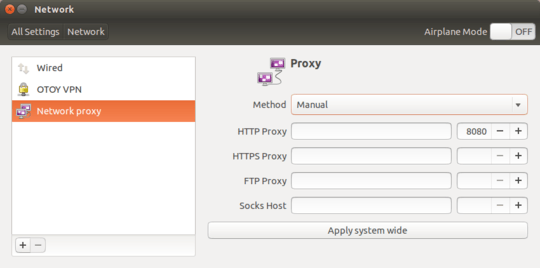I think this deserves a simpler answer so here it is.
If you enter the network settings you will see that when configuring the proxy a protocol and port can be specified.

Web browsers generally talk the language of the web server which is HTTP. They can often talk to FTP servers as well. HTTPS is just the encrypted form of HTTP.
As you can see from the dialog, the proxy settings only apply to the HTTP, HTTPS, FTP and SOCKS protocols. Also not all utilities may obey these settings. The major web browsers do though.
So when you brought your computer home and plugged it into your home network, the proxy host(s) are no longer reachable so the web browsers are not able to browse.
However, other apps like ping work because they don't use a proxy at all. In fact, as many have pointed out, ping uses ICMP which is a completely different protocol. Ping will tell you your computer is still able to reach computers on the network. Other utilities that don't use HTTP or don't obey the network proxy settings here may also work as you've discovered.

3Best guess: You set up a proxy for port 80 (and port 80 only). So only your webtraffic is redirected via the proxy and only the webtraffic fails if the proxy is down.
As to how to a terminal work ober a proxy: It does not. It simply does not use it. It uses system defaults. And if you only changed proxy settings for/in a browser then there is no reason for ping or any other command to fail. – Hennes – 2015-11-18T13:37:34.980